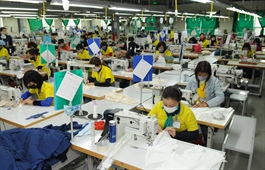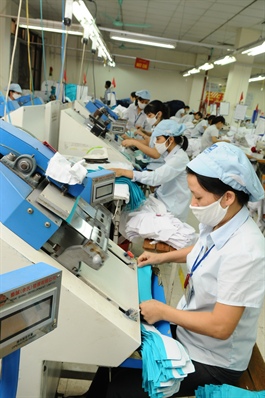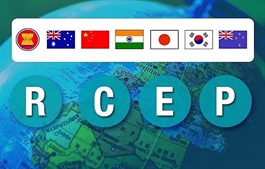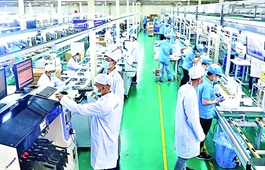Standard Chartered Bank: Regional focus to support Viet Nam’s post-COVID recovery
Standard Chartered Bank: Regional focus to support Viet Nam’s post-COVID recovery
Viet Nam is a key beneficiary of the Regional Comprehensive Economic Partnership (RCEP), which entered into force on January 1, 2022 and creates the world’s largest free trade area, according to Standard Chartered Bank in its latest Global Research Report titled: “Viet Nam – RCEP: Opportunities and challenges”.

The deal is expected to eliminate about 90 per cent of tariffs on trade between the signatories within 20 years.
The membership in the pact further strengthens Viet Nam’s trade position and should contribute to the post-pandemic recovery this year. Major export categories that are expected to benefit from the RCEP include IT, textiles, footwear, agriculture, automobile and telecommunications. Over the longer term, the deal could form the basis for a new supply chain in the region, with Viet Nam playing a key role. The country targets average export growth at 6-7 per cent a year from 2021-30.
“The RCEP should boost Viet Nam’s exports and improve its access to large consumer markets including China, Japan, South Korea and Indonesia. The pact should lower costs for producers in Viet Nam and give them access to supply chains that extend across the Asia-Pacific region; most of the input materials for Viet Nam’s exports are sourced from RCEP countries,” said Tim Leelahaphan, Economist for Thailand and Viet Nam, Standard Chartered.
“SMEs – which account for 98 per cent of all enterprises in Viet Nam and contribute 40 per cent of GDP – are poised to benefit as the pact provides opportunities for them to move up the value chain.”
However, Viet Nam is also likely to face more competition – both in export markets and domestically – as a result of RCEP. For exports, the pact increases competition from other Southeast Asian countries, some of which are strong in similar product categories to Viet Nam (such as labour-intensive goods). Over time, this could prompt Viet Nam to move into high-tech manufacturing. RCEP should facilitate this process, making it easier to source high-quality materials from other member countries and improving market access for higher-value-added goods.
More broadly, the RCEP is likely to accelerate China’s economic integration with the rest of the Asia–Pacific region; in contrast, the US is not an RCEP signatory. Viet Nam will continue to benefit from its role as an alternative manufacturing hub as companies adopt a ‘China plus one’ diversification strategy. At the same time, however, China’s low-cost products will gain better access to Viet Nam’s domestic market under RCEP, posing potential challenges to domestic competitors.
Standard Chartered Bank’s economists expect a strong current account (C/A) surplus and FDI flows to remain the key pillars of support for the Vietnamese dong (VND) over the long run. The RCEP is likely to further boost Viet Nam’s exports, supporting the C/A balance, and help attract increased direct investment flows.
“The sum of Viet Nam’s C/A balance and net direct investment has averaged a sizeable US$19 billion annually over the past nine years. Given this strong basic balance, we expect the Vietnamese dong to remain on an appreciation path in the coming years. We forecast USD-VND at 22,500 by end-2022 and 22,000 by end-2023,” said Divya Devesh, Head of ASA FX Research, Standard Chartered Bank.



















